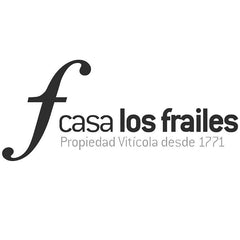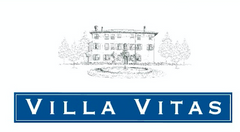45 products
- Red Wine
- Cabernet Sauvignon, Grenache, Merlot, Tempranillo
- Organic, Sustainable, Vegan-Friendly
- Dry
- Full Bodied
- 750ml
- 14% alc./vol
About the Winery
Pago Aylés

Pago Aylés was founded by Federico Ramón, who in 2003 began his dream of classifying this unique land as the first Vino de Pago in the Aragon region. In the Spanish wine quality pyramid, the Pago stands as a top tier or grand cru winery. Just before Federico died, his dream came true in 2010, as Aylés became the 10th Vino de Pago in Spain.
Today his three children continue to produce wines from this special land. The vineyard site has a long history of winemaking, dating back to the 12th century by Spanish monks. Influenced by the River Huerva and the Monte San Pablo mountain, the soil is a mixture of clay, limestone and chalk – ideal for making high-quality wine. Caves, ravines and old river beds can be found all over the estate, which is brimming with wildlife.
Press Reviews
Wine Align
Vintage 2020 - 90 points - John Szabo, MS
Deeply coloured and sweet-smelling, very ripe and sappy red blend from Aylés (merlot, garnacha, tempranillo and cabernet sauvignon), with a solid dose of sweet wood spice and jammy black fruit in an almost new world, California-like expression. The palate is soft and plush, immediately satisfying and inviting with its vague impression of sweetness, and supple, creamy tannins and acids and solid concentration. The finish lingers on espresso-mocha notes, though not in exaggerated fashion. A bold and satisfying, widely appealing wine all in all for current enjoyment or short term hold - this is all about the ripe fruit. Tasted March 2022.
- Red Wine
- Syrah
- Biodynamic, Organic, Vegan-Friendly
- Dry
- Full Bodied
- 750ml
- 15.60% alc./vol
About the Winery
Casa Los Frailes

Casa Los Frailes is located in the valley called “land of Alforins”, south west inland province of Valencia, with average altitude of 650-700 meters above sea level. The valley is located between two mountains range, on the east the Mediterranean Sea (50km) and on the west the main “plateau” of La Mancha. Casa Los Frailes (“Cals Frares” in old valencian local language) takes their name from the Jesuit Friars that used to live in the Estate over two centuries (XVII to XVIII). The Casa Los Frailes estate now belongs to the Velázquez family and has for over 250 years, today the 13th generation runs the winery.
Frontrunners in organic agriculture and biodynamics, the estate consists of 162 hectare with vineyards, Mediterranean forest, almond and olive trees and a unique terroir. The main variety was (and still is) the Monastrell, cultivated in bush vines. "As inheritors of such legacy, we believe our wines should be part and transmit the history of our estate, as this history is obviously unique. In today's interconnected world, wines are more and more uniform, but we are committed to elaborate authentic and different wines, loyal to our personality and our history."
Press Reviews
Wine Align
91 points - David Lawrason
2019 vintage: This is a deeply coloured blend, with a lifted, strident nose of blueberry, cassis, rosemary and some meaty character. It is notably green and almost sappy on the palate. Quite full bodied, fairly rich yet the acidity is high, as is the alcohol (14%). Tannins are well integrated and firm. The length is excellent. Very distinctive and well done. Tasted October 2019
- Red Wine
- Grenache
- Organic, Sustainable, Vegan-Friendly
- Dry
- Full Bodied
- 750ml
- 14.5% alc./vol
About the Winery
Pago Aylés

Pago Aylés was founded by Federico Ramón, who in 2003 began his dream of classifying this unique land as the first Vino de Pago in the Aragon region. In the Spanish wine quality pyramid, the Pago stands as a top tier or grand cru winery. Just before Federico died, his dream came true in 2010, as Aylés became the 10th Vino de Pago in Spain.
Today his three children continue to produce wines from this special land. The vineyard site has a long history of winemaking, dating back to the 12th century by Spanish monks. Influenced by the River Huerva and the Monte San Pablo mountain, the soil is a mixture of clay, limestone and chalk – ideal for making high-quality wine. Caves, ravines and old river beds can be found all over the estate, which is brimming with wildlife.
Press Reviews
Wine Align
90 points (2023) - Michael Godel
Unexpected would indicate that strange things are forecast to occur but this garnacha from the large and historical Finca Aylés estate in Cariñena pretty much does the expected. Delivers dark varietal fruit with a mineral streak as salty as it is firm. Crunchy garnacha, full bodied and flavoured for the foreseen and well, expected. Garnacha of empowerment, helping consumers trust themselves and their palates and opinions, ultimately enabling them to confidently make wine purchasing decisions. Drink 2025-2027. Tasted March 2025.
- Red Wine
- Bobal
- Sustainable, Vegan-Friendly
- Dry
- Medium Bodied
- 750ml
- 14% alc./vol
About the Winery
Agrícolas de Vinos La Higuera
Agrícola de Vinos La Higuera is a small project founded in 2017 by two friends, Javier del Blanco and Jorge Navascues, to join their knowledge in the wine industry while working separately with top Estates from different regions all over Spain.
The aim is to nurture and craft honest wines that will honor their origins, with great value and genuine quality, expressing the purity of the grape variety and the environment they are grown in.
Press Reviews
WineAlign
90 points (2020) - Michael Godel
A varietal bobal from Utiel-Requena where 34,000 hectares in Valencia between the two neighbouring towns of Utiel and Requena are mostly concerned with this unique variety. Here is a firm and medium-bodied example with a plenary meeting of root-earthy fruit and exemplary acidity. Not exactly tannic but structured in its own parochial way to live non-plussed for a few years. This is quite a youthful example with more getable juiciness than many. Drink 2023-2025. Tasted February 2023.
90 points (2020)- Sarah d'Amato
A fruity, juicy red smartly packaged with a modern-utilitarian label from the Valencian sub-appellation of Utiel Requena where the bobal variety dominates in both red and rosé forms. Mid-weight, supple and easy-drinking with white pepper spice, and bramble along with wafting notes of botanicals and mint. Lightly reduced in a very pleasant fashion. Would benefit from a slight chill. Engaging and convivial with plenty of food pairing potential. Ready to drink. Tasted February 2023.
90 points (2020) - Megha Jandhyala
This 100% bobal was sourced from a single vineyard called La Pinada planted in 1958 in the Valencian sub-appellation of Utiel-Requena. It has a sense of freshness, candour, and authenticity that is appealing. I like the ripe red fruit flavours including plump and juicy strawberries, raspberries, and cherries, accompanied by notes of savoury herbs and earthy tones. The palate is medium-bodied and fresh, with juicy acids and fine tannins, while alcohol is well-integrated (13.5%, per the label). Ready to drink, this bobal is best enjoyed lightly chilled. Tasted February 2023 by Critic Understudy Megha Jandhyala.
- Red Wine
- Graciano, Grenache, Tempranillo
- Sustainable
- Dry
- Medium Bodied
- 750ml
- 14.5% alc./vol
About the Winery
Bodegas Exopto
Exopto is Latin for “to long for” or “to desire greatly” and it is the dream of Frenchman Tom Puyaubert and his family to endeavor to craft and assemble wines where the whole adds up to more than the sum of their parts. Tom relocated from France to Rioja in 2000 after falling in love with the region and working for the French cooperage Saury as its Spain representative.
When Tom began Exopto, he wanted to do a project that produced wines within this historical context of Rioja - combining both worlds in a unique way. His idea is to remain true to the blending of the principle grape varieties and to do so from the best terroirs/villages for those varieties crossing sub-regions of Rioja. Each wine though, has a majority of a different principle grape – showcasing that variety specifically within the context of a blend. The viticulture and winemaking model is that of the “vigneron” days – small plots of vines in the extremes, wild yeast fermentation in concrete or old oak vats and then aging in a way to showcase the fruit, minerality and terroir not the wood or aged flavours that people often associate with Rioja.
Press Reviews
Wine Align
91 points (2021) - John Szabo
A blend of garnacha, tempranillo and graciano grown at around 500m in the Sierra de Cantabria, this is aged exclusively in concrete and thus a long way from what many would consider the 'traditional' style of Rioja. I like the freshness and vibrancy allied at the same time to ripe, plush fruit spanning both the red and black spectrum. Tannins are supple and acids balanced and creamy, leading into a long, gently saline finish. Concentration and depth, as well as complexity overall, far exceed expectations in the category. Well made wine from an evidently superior vineyard, delicious now, or hold 3-4 years. Tasted January 2024.
91 points (2021) - Megha Jandhyala
This is a charming Rioja, a blend of garnacha, tempranillo, and a small amount of graciano. I like the bright, supple red fruit here and the pretty floral and savoury herbal notes. The palate is lively and supple, with fine-grained tannins and juicy acids. Fresh, streamlined, and with a sense of lightness that is appealing, this wine is ready to drink, though it can also be cellared for a couple of years. Tasted January 2024.
- Red Wine, White Wine
- Bobal, Colombard, Gros Manseng, Limniona, Mavroudi, Pinot Grigio, Sauvignon Blanc, Xinomavro
- Natural, Organic, Sustainable, Vegan-Friendly
- Dry
- Light Bodied, Medium Bodied
- 750ml
About the Winery
Agrícolas de Vinos La Higuera
Agrícola de Vinos La Higuera is a small project founded in 2017 by two friends, Javier del Blanco and Jorge Navascues, to join their knowledge in the wine industry while working separately with top Estates from different regions all over Spain.
The aim is to nurture and craft honest wines that will honor their origins, with great value and genuine quality, expressing the purity of the grape variety and the environment they are grown in.
Lionel Osmin & Cie

Lionel Osmin & Cie started out with just a group of friends with the same keen passion, with the same love for wines from the South West. Then they had an idea to achieve what nobody had ever done before: to create a quality wine-broking house based on South Western wines following the example of other regions such as Burgundy or the Rhône.
With that founding principle, Lionel Osmin & Co was therefore created under the leadership of Lionel boasting the discovery of the unique wines and vineyards of this region. From Jurançon to Cahors, from Gaillac to Bergerac, passing through Marcillac, Lionel Osmin & Co has become the sole transversal signature of the wines from the South West and their vineyards whose secrets which are yet to be discovered!
The result is a range of wines whose characteristics are faithful to the region and which are made to share the joy of discovering the vines and wines that are enjoyed and loved.
Vitas

The Vitas Winery has been in the family since 1935, for four generations. It is located in the wine-producing area of DOC Friuli Aquileia, on a clayey-marly and sandy-calcareous soil (the so-called Magredi), one of the ingredients which, together with the influence of the sea and a friendly sun, create a perfect microclimate for vine-growing. A lot of importance is placed on conserving the environment and they use methods that protect their natural resources and the surrounding environment
- Red Wine
- Carignan
- Sustainable
- Dry
- Full Bodied
- 750ml
- 14.8% alc./vol
About the Winery
Bodegas Puiggros

Since 1843, the Puiggros family has been producing wines from their own vines in the Odena region of Catalunya for the family and close friends. Over generations they had come to realize that their vineyards and techniques were something worth sharing with the world. A sincere dedication to the terroir in their zone and the indigenous varieties that grow there, allows them to constantly discover ways to unlock all of the magic that lies within their land.
Starting with conscious and clean farming in the vineyard, they hand-harvest only the best fruit for their production, and ferment each vineyard separately in varying vessels to accentuate what the vines have to show; some in stainless steel, and many in clay amphora of differing sizes. All the while seeing very little sulfur use (if any) until bottling. Puiggros is pushing the quality of northeastern Spain's wines forward, and doing so in a clean and unique way.
Bodegas Puiggròs

Since 1843, the Puiggros family has been producing wines from their own vines in the Odena region of Catalunya for the family and close friends. Over generations they had come to realize that their vineyards and techniques were something worth sharing with the world. A sincere dedication to the terroir in their zone and the indigenous varieties that grow there, allows them to constantly discover ways to unlock all of the magic that lies within their land.
Starting with conscious and clean farming in the vineyard, they hand-harvest only the best fruit for their production, and ferment each vineyard separately in varying vessels to accentuate what the vines have to show; some in stainless steel, and many in clay amphora of differing sizes. All the while seeing very little sulfur use (if any) until bottling. Puiggros is pushing the quality of northeastern Spain's wines forward, and doing so in a clean and unique way.
Press Reviews
Wine Align
94 points - David Lawrason
This is a quite lovely, refined and intriguing Priorat - not as 'heavy' and powerful as some but so nicely expressing the carinyena (carignan) grape. Expect lifted aromas of pomegranate/raspberry with florals, fresh herbs, earth and mineral notes all finely integrated. It is medium-full bodied, lively and almost juicy with carignan's natural energy at work. Tannins are dry and dusty but not green. The length is excellent to outstanding. Will age another ten years but approachable now. Tasted May 2025
93 points - Michael Godel
The work of Bodegas Puiggrós happens in Catalunya and also here in Priorat where the soils are predominantly slate, known locally as “llicorella,” and the significance on the wines, inclusive of this varietal carinyena should not be overlooked. Or taken for granted because the tightly wound, focused and intensity of ultra specific mineral feels are what drive the regional machine. A serious and giving wine from a promising vintage yet here in its infancy and surely structured to be three years away from optimum potential. Drink 2027-2032. Tasted May 2025.
93 points - John Szabo, MS
This is the first vintage of this wine from Priorat produced by Bodegas Puiggròs, made of pure carinyena (carignan) form the region's steep, slate vineyards, and aged in amphora I'm led to believe, though no details can be found on the winery website. It certainly smells like a terra cotta-aged wine with its wet concrete and clay aromas, alongside lavender and rosemary, wildly resinous; fruit is very much a side show in this exotic and original example. It enters fluidly and sleekly before dusty tannins kick up; acids are balanced. It's quite tight and linear overall despite 15% alcohol declared, a far cry from the broad, base note-heavy style more typical of the region. It's an utterly new paradigm for Priorat, at least in my experience - I'd like to spend more time with it to see how the story unfolds, and watch it over several years in the cellar. I keep coming back for more. Tasted May 2025.
91 points - Sara d'Amato
This carignan-based Priorat is full-bodied and warm but well-crafted with an undercurrent of minerality and lightly salty freshness. Showing some evolution in colour and fruit with ample natural spice and hints of iron. Drinking very well now with good depth of flavour and significant length. Tasted May 2025.
- Red Wine
- Tempranillo
- Dry
- Residual Sugar: 1.2 g/l
- 750ml
- 14% alc./vol
About the Winery
Bideona

Bideona owns or manages over 300 parcels of extraordinary vines in villages throughout the Rioja Alavesa, the coolest, smallest and most Atlantic sub-zone of Spain’s most famous wine region.
The vineyards of the Rioja Alavesa are defined by parcels of old bush vines planted on terraces or hillside slopes with a high percentage of limestone. Located in the foothills of the Sierra Cantabria, Bideona’s vines have an average age of 50 years and many were planted in the 1920s, 30s and 40s, before high-yielding clones became available.
Bideona puts the focus firmly on terroir by making each wine in its Vino de Pueblo range as a field blend of Tempranillo and other native varieties from plots in an individual village. Each is named with an acronym – L3Z4 for Leza, L4GD4 for Laguardia, S4MG0 for Samaniego and V1BN4 for Villabuena – owing to DOCa Rioja regulations that only allow village names to be marked if both the winery and the vineyard are in the same location.
“Bideona’s reason for existence is to make wines that show the personality of the Rioja Alavesa and its historic wine villages” states company co-founder and director, Andreas Kubach MW. “We have access to a wealth of diverse plant material in our parcels of old vines, which we believe contributes to the complexity of the wines as well as the differences between villages.”
Press Reviews
Wine Align
92 points - Michael Godel
Nine months has done nothing to diminish the energy and swagger of Las Parcelas which brings together fruit from Bideona’s four distinct terroirs each labeled under a viñedos singulares distinction. Sure this may lack the depth of those unique expressions but it does gather them as one layered tempranillo and best of all the 2021 vintage is presented in high esteem. Much anticipation for what else is still to come. Last tasted December 2024. Las Parcelas takes winemaker Tao Platon’s Rioja work to another level because fruit remains at the core in the most pure and clear way. There is little to no distraction by wood or other winemaking work and terroir speaks about as prominently as it can in a wine at this price level. Perfumed, silken, moderate of style, easy to drink and finely tannic without austerity or unnecessary grip. Fine in so many ways. Drink 2025-2030. Tasted March 2024.
92 points - John Szabo, MS
Bideona draws from over 300, mostly tiny parcels in Rioja Alavesa, the highest sub- region in the denomination, aiming to capture the perfume and freshness of high-elevation tempranillo and other locals. Las Parcelas, is a blend of parcels, considered a 'regional' wine in the portfolio's hierarchy, below single vineyard and single village wines, but's it's a beauty on every level, especially having moved past the reductive stage noted in my previous review. I love the delicate fragrance offered straight off the top, replete with fresh red fruit and an herbal-floral twist, almost peppery, while the palate delivers crunchy limestone acids and silky-firm tannins lending a sandy texture. I enjoy the freshness of fruit now, though I suspect tannins will soften nicely over the next year or two if you're seeking more silk. Tasted December 2024. Previous: Bideona's Las Parcelas Rioja hails from the foothills of the Sierra Cantabria in the Rioja Alavesa, the highest elevation vineyards in the denomination. There's a slightly reductive edge to this young, predominantly tempranillo- based red, with a mix of both fresh red and also black fruit, with notable floral components and a notable lack of obvious wood influence, you could say a more contemporary style. The palate is plush and nicely concentrated without excess, deeply fruit with lasting flavours. It makes a great counterpart to Bideona's more traditional Artelan Reserva bottling at a similar price, two styles, two very good wines. Drink this one from about 2026-2032. Tasted March 2024.





























